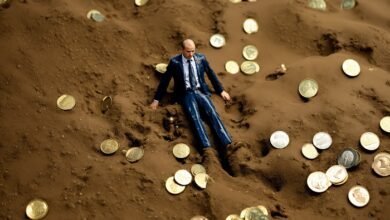
Introduction:
Are you wondering how much 80 euros convert to in US dollars? The exchange rate between these two currencies is a common concern for travelers, investors, and anyone involved in international transactions. In this guide, we’ll delve into the current conversion rate, factors influencing currency exchange, and practical tips for managing your finances effectively.
Currency Exchange Rates:
Before we dive into the specifics, let’s grasp the basics of currency exchange rates. These rates represent the value of one currency relative to another. For instance, if you’re holding euros and want to convert them into US dollars, you’ll need to know the current exchange rate.
Factors Influencing Exchange Rates:
Several factors influence currency exchange rates, including economic indicators, geopolitical events, and market speculation. Economic stability, inflation rates, and interest rates play pivotal roles in determining the value of a currency. Additionally, political stability and global trade dynamics can impact exchange rates significantly.
Current Conversion Rate:
As of [insert current date], the exchange rate for euros to US dollars stands at [insert current exchange rate]. Therefore, if you possess 80 euros, you can calculate their equivalent value in US dollars using this rate.
Calculating 80 Euros in US Dollars:
To determine how much 80 euros convert to in US dollars, multiply the amount of euros by the current exchange rate. For example, if the exchange rate is 1 euro = 1.20 US dollars, then 80 euros would be equivalent to 96 US dollars.
Tips for Managing Currency Conversion:
When engaging in currency conversion, it’s essential to consider potential fees and charges imposed by banks or currency exchange services. Opting for reputable exchange platforms or banks can ensure fair rates and transparent transactions. Additionally, keeping an eye on fluctuating exchange rates can help you make informed decisions regarding currency conversion.
Navigating Exchange Rate Fluctuations:
Exchange rates are subject to constant fluctuations due to various economic and geopolitical factors. While it’s impossible to predict market movements accurately, staying informed about global events and monitoring currency trends can empower you to make timely currency exchange decisions.
Planning Ahead for Currency Needs:
Whether you’re traveling abroad or conducting international business, planning ahead for your currency needs is crucial. Consider factors such as exchange rate trends, anticipated expenses, and the duration of your trip to effectively manage your finances and avoid last-minute currency exchange hassles.
Conclusion:
The question of “how much is 80 euros in US dollars” is not merely a numerical query but a gateway to understanding the intricacies of currency exchange. By staying informed about exchange rates, leveraging reliable resources, and adopting prudent financial strategies, you can navigate the world of international finance with confidence.
FAQs:
1.Why Do Exchange Rates Fluctuate? Exchange rates fluctuate due to various factors, including economic indicators, geopolitical events, and market speculation. Supply and demand dynamics also influence currency values.
2.Are Exchange Rates the Same Everywhere? No, exchange rates can vary between different banks, currency exchange services, and countries. It’s advisable to compare rates and fees before conducting currency conversions.
3.How Often Do Exchange Rates Change? Exchange rates can change multiple times throughout the day, depending on market activity and global events. Real-time exchange rate platforms provide up-to-date information on currency values.
4.Is It Better to Exchange Currency in Advance? The optimal timing for currency exchange depends on individual circumstances and market conditions. While exchanging currency in advance can provide peace of mind, it’s essential to monitor exchange rate trends for potential advantages.
5.Can I Hedge Against Currency Fluctuations? Yes, individuals and businesses can hedge against currency fluctuations through various financial instruments such as forward contracts, options, and currency futures. These strategies help mitigate the risk of adverse exchange rate movements.





